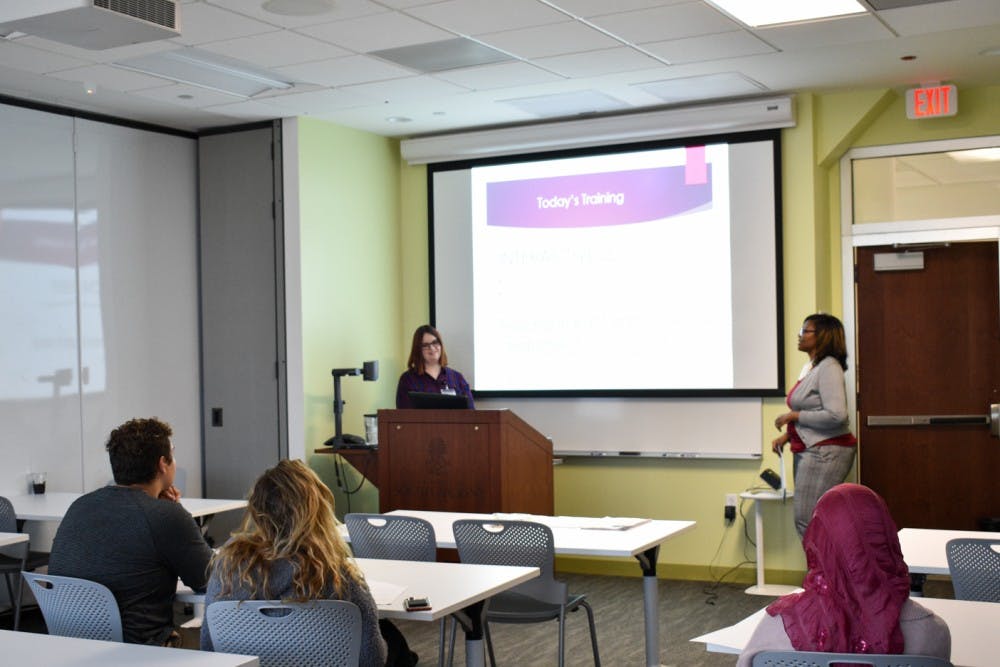Student Government is celebrating its Stigma Free Week by teaching students about mental health, suicide prevention and how to live a stigma free lifestyle.
Chase Arledge, a third-year psychology student, organized Stigma Free Week and stressed the importance of the education of mental health.
“I’ve been really mindful of like, ‘How do we make this as sustainable as possible?’ So I’ve been trying to coordinate with health center ... to really highlight these programs that happen all year round," Arledge said.
The University of South Carolina offers various mental health programs, ranging from clubs that help students stay organized and stress free to gatekeeper training for suicide prevention.
Stigma Free Week works toward showcasing on-campus resources in order to eliminate some popular misconceptions about mental health and offer help to any student struggling, according to Arledge.
“I think that we’ve reached that first step that everyone likes to talk about it," Arledge said. "I think we’re kind of in a place where people maybe lack the education that’s required to take mental health seriously.”
Suicide gatekeeper training aims to teach students how to recognize the signs a friend is struggling with their mental health and how to help them when they’re in trouble. The training session is interactive and roleplaying exercises are performed in order to teach students how to drive a conversation with someone struggling.
Students are also taught tips, such as directly addressing the problem at hand, listening instead of suggesting ways to fix the problem and being careful with wording regarding sensitive subjects.
“I feel like it’s really important for me to have these skills. You know, just, even if I don’t necessarily need them now, I might in the future,” Ginny Reams, a second-year political science student who attended the event, said.
Suicide is the second leading cause of death among college students. It's also a leading cause of death in the country, with over 47,000 deaths by suicide happening each year, according to the Center for Disease Control. That’s about 129 deaths by suicide a day.
“We do have a lot of resources [to help]; I think the issue's that people don’t know how to access them,” Reams said.
The suicide gatekeeper training suggested a few lifestyle practices to promote mental health. The number one way is to talk about what you’re feeling, which is always easier said than done, Arledge said.
“Every student has ten free counseling sessions," Arledge said. "I recommend that everyone use them. Even if you are feeling pretty great, that's a great time to check in with yourself.”
Other lifestyle practices such as keeping active, avoiding alcohol and eating well are recommended tips from the session. However, when it comes to keeping positive mental health, Arledge recommended checking in on yourself and others.
“For me, it's just like, you can never go wrong with being mindful and just checking in on the way you feel. Like for me, I do yoga at least once a week," Arledge said. "I have Headspace, which is this meditation app that I use everyday. So just checking in with the way you feel.”

